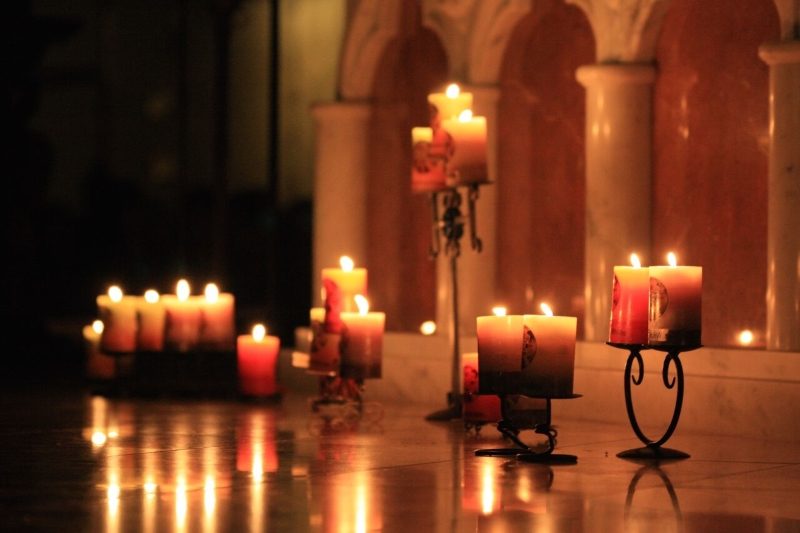by Sue Jones
On the feast of the Holy Family, the priest told the congregation that he had prepared a homily earlier in the week. However, that morning, during the Divine Office, he was moved by Pope St Paul VI’s reflection on the Holy Family, written upon his visit to Nazareth. Father shared this with us. He did not paraphrase it, but spread the words over the congregation like a mantle.
He spoke of silence, family and work. A contemplative atmosphere of moody silence settled over holiday-makers and locals alike as we listened. The People of God became, for that small while, “one body, one spirit in Christ”.
This contemplative, silent unity happens rarely around the Word. It is a good example of how the common, contemplative life of the Church works amongst the People of God. Nobody planned it, but for that small while Father became a contemplative “influencer”. He brought us into the silence of God, and we were united in that silence.
Taking that “Wordy” mood home, people could perhaps reflect on the homily in the light of the readings, and in the context of neo-liberal, progressive societies in which they live. St Paul VI said that every family is a school of the Gospel. But the family is under threat.
In his book Let us Dream, Pope Francis says, “Of all the institutions, family life has taken the hardest knock of all. It has lost, or at least blurred, its social identity as the ‘first society’, where a person is formed as a member of something larger. . . .”
The social teaching of the Church has much to say about work. But it is silence that is so alien to life today. Just a few days before this feast day, we celebrated Christmas and, though we sung Silent Night, silent we were not. That we cannot shut up is a tragedy, because silence is ordered to something larger than ourselves. It is one of the keys to a contemplative world in which love hosts the human search for God.
When the laity were officially called to mission and holiness, that call did not say our job description excluded the “better part” of Christian love and service which Jesus Christ speaks of in the Gospel. This “better part” associated with prayer, solitude and silence is traditionally the prerogative of monastic life. Sadly, lay people who are searching for God must use monastic spirituality when they cannot find the spiritual food they need in common or garden family and parish life.
Yet family and parish life are fertile ground for a person wanting an “entry level” experience of the common, contemplative life of the Church. We do not need to turn our homes into little monasteries.
In Amoris Laetitia, Chapter 5: Section 137, Pope Francis speaks about love in marriage. He uses the words “quality time” to convey an idea about the evangelical, “better part” of love. If the reader substitutes the phrase “quality time” with “contemplative time”, he or she might get a better understanding of what the Pope is saying.
In marriage, the Pope thinks it is fitting for a spouse, now and then, to step back and just “look” in silence at the person who is loved. This sort of ‘God look’ is a contemplative/sacramental act of love, which helps spouses to grow together “in Christ”. It cannot be planned or indeed talked about. It is prompted by God’s Holy Spirit breezing through the difficulty of family life and settling on a person.
In parish life, it is much harder to get the more diverse, less intimately loving People of God to grow as “one body one spirit in Christ”. Some silence at Mass might prompt persons to step back and “look” at God, the One who is supposedly loved. I think that is what Father did for us that day. But many in our noisy, busy Church will say that this “look” cannot be missioned. Twaddle!
In the epilogue of his book Let us Dream, Pope Francis talks about the need for persons to “de-centre” and “transcend”. These are contemplative actions, which await God’s informal direction or influence. I suspect Pope Francis does a fair amount of contemplative “looking, de-centreing and transcending”. His love is broad, deep and has plenty of connectivity. He effortlessly acknowledges the needs of a faithful person, at the same time as he exposes the needs of the planet. He does this by turning his personal conversion story inside out to mission it in the world.
Sue Jones is a writer from Mahia Beach.

Reader Interactions